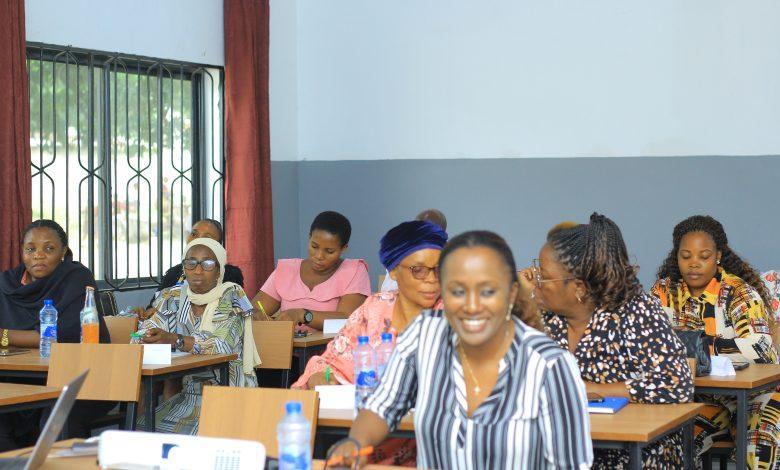Africa-Press – Tanzania. AS part of ongoing efforts to raise awareness on autism, the Lukiza Autism Foundation has commenced implementing a project aimed at training pre-primary school teachers on early signs of autism.
Dubbed “Ustawi Kwa Kila Mtoto – Viashiria vya Usonji” literary translated as (Well-being for Every Child – Early Signs of Autism), the initiative will be implemented in five years.
This first training was held recently at Mwenge Primary School in Kinondoni District, focusing on equipping preprimary school teachers with the knowledge and skills to identify early indicators of Autism in children.
The training was led by a Consultant, Pediatric Neurologist and Senior Lecturer at the Muhimbili University of Health and Allied Sciences (MUHAS) Dr Edward Kija who was joined by Founder and Executive Director of Lukiza Autism Foundation, Ms Hilda Nkabe, alongside the foundation’s team of trainers, including Dr Jedidah Brooke Wanjiru, a Speech and Language Pathologist from Nairobi.
Speaking shortly after the training, Ms Nkabe said the session involved pre-primary school teachers from Kijitonyama Ward, as well as education officers from the regional, district and ward levels.
She said the session explored ways to strengthen teachers’ capacity to recognise early signs of autism and understand the importance of timely intervention for children showing early signs.
“Lukiza Autism Foundation has successfully conducted the first official training session under our flagship five-year project on early identification of autism, giving each child an opportunity to thrive, which targets preprimary school teachers to enhance their understanding of early signs of autism,” she said.
She added: “Together, they explored ways to strengthen teachers’ capacity to recognise early signs of autism and understand the importance of timely intervention for children showing early signs.”
She further said during the training, teachers were equipped with practical strategies to identify early signs of the problem and how to advise parents to take children who show the signs to health facilities for further assessment and diagnosis.
“Early identification will allow children with Autism to access timely developmental support and appropriate education, helping them thrive in inclusive school and community environments,” she said.
Ms Nkabe said the Foundation remains committed to continue investing in raising public awareness about the challenges surrounding autism services in the country.
“The foundation works hand in hand with teachers, parents and stakeholders in both health and education to ensure that every child has the opportunity to learn and grow in supportive, inclusive spaces,” she said.
She said in the first year (2025/2026), the Foundation plans to train approximately 100 schools, reaching an estimated 300 teachers and impacting around 2,500 children.
“Global statistics show that 1 in every 100 children under the age of 5 is at risk of having autism. Based on these estimates, about 25 children could potentially be identified with Autism in the first year of the project alone,” she said.
She further called upon donors and organisations to invest in this vital early identification of autism project, which aligns with the national development goal under national development vision 2050 of ensuring a better life and well-being for all.
For More News And Analysis About Tanzania Follow Africa-Press







